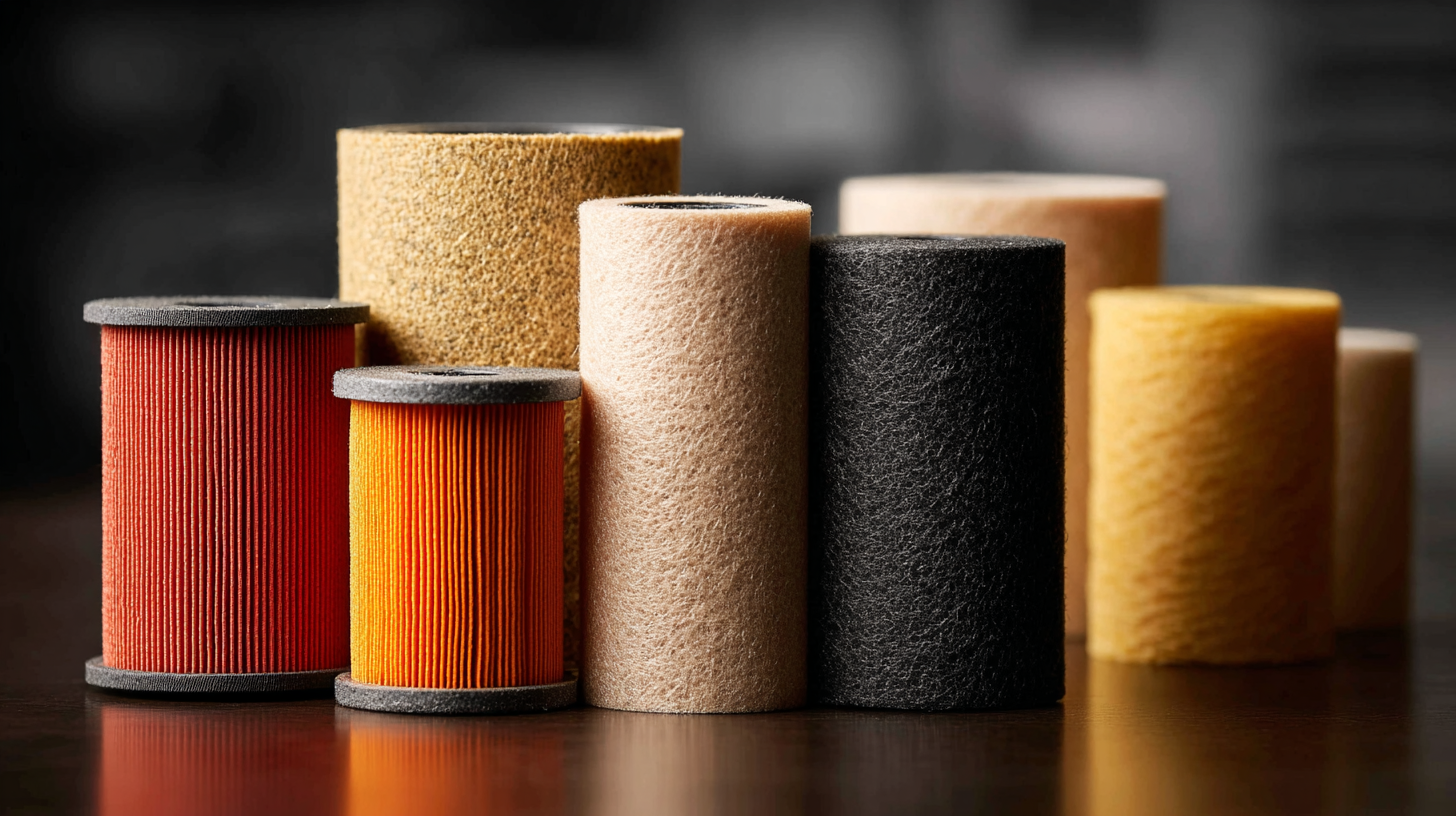In the highly competitive automotive industry, the significance of selecting the right automotive filter cannot be overstated. According to a recent report by Allied Market Research, the global automotive filter market is poised to reach $21.9 billion by 2026, driven by increasing vehicle production and stringent emissions regulations. Automotive filters play a crucial role in maintaining vehicle performance and longevity by ensuring the purity of air, oil, fuel, and cabin air entering the vehicle systems. As automotive technology advances and environmental initiatives gain momentum, optimizing your filter supply chain becomes essential for meeting global demand. This guide aims to provide comprehensive insights into the various types of automotive filters available, the factors to consider when choosing them, and the best practices for sourcing to ensure your supply needs are met with efficiency and reliability.

Automotive filters play a critical role in ensuring optimal vehicle performance and longevity. They can be classified into several types, including oil filters, air filters, fuel filters, and cabin filters. Each type serves a unique purpose: oil filters remove impurities from engine oil, air filters prevent contaminants from entering the engine, fuel filters clean the fuel before it reaches the engine, and cabin filters enhance passenger comfort by filtering outside air. According to recent industry reports from the Automotive Filter Market Analysis, the automotive filter market is expected to grow by 7.5% annually, underscoring the importance of selecting the right filters for your needs.
When choosing automotive filters, here are some essential tips to consider: First, always check the manufacturer specifications to ensure compatibility with your vehicle model. Using filters designed specifically for your make and model can enhance performance and reduce potential damage. Second, consider the filter’s material and design—HEPA and synthetic filters often provide superior filtration compared to standard options, making them worth the investment. Lastly, regular maintenance is crucial; replacing filters at recommended intervals will help maintain engine efficiency and protect against costly repairs down the line. Remember, a well-maintained vehicle relies heavily on the proper functioning of its filters.
This chart illustrates the market share of different types of automotive filters used in vehicles globally. Understanding these filters is crucial for selecting the best options based on your supply needs.
 When selecting automotive filters for your global supply needs, it’s crucial to consider several key factors. Understanding the market trends and the specific requirements of your vehicle can significantly impact your choices. For instance, the global automotive exhaust systems market is projected to grow from $113.5 billion in 2018 to $147 billion by 2032, reflecting a steady compound annual growth rate of 2.0%. This growth highlights the increasing importance of efficient filtration systems to meet stringent emission regulations.
When selecting automotive filters for your global supply needs, it’s crucial to consider several key factors. Understanding the market trends and the specific requirements of your vehicle can significantly impact your choices. For instance, the global automotive exhaust systems market is projected to grow from $113.5 billion in 2018 to $147 billion by 2032, reflecting a steady compound annual growth rate of 2.0%. This growth highlights the increasing importance of efficient filtration systems to meet stringent emission regulations.
Additionally, focusing on air quality is essential. Poor outdoor air quality directly affects in-vehicle conditions, which has led many drivers to install cabin air purifiers to reduce PM2.5 pollution levels. With the HEPA filter market expected to grow at an impressive CAGR of 8.1% by 2032, choosing high-quality filters can enhance air purity inside vehicles and contribute to overall health.
Tips: When evaluating filters, always check for their compatibility with your specific vehicle model and focus on filters that offer multi-stage filtration for optimal air quality. Furthermore, consider suppliers that emphasize sustainability in their manufacturing processes to align with the growing demand for eco-friendly products.
When it comes to automotive filters, the significance of quality manufacturing cannot be overstated. The filters serve as a critical line of defense against contaminants that can compromise engine performance and longevity. Quality manufacturing ensures that these filters are built to last, meeting stringent industry standards that help maintain the integrity of the entire vehicle system. For manufacturers, investing in advanced production techniques and materials is essential to provide a reliable product that consumers can trust.
Moreover, the importance of quality manufacturing extends beyond mere functionality. It also speaks to the overall sustainability and efficiency of the automotive supply chain. High-quality filters reduce the frequency of replacements, decreasing waste and providing cost savings for both manufacturers and consumers. In a global market where reliability and performance are paramount, companies that prioritize quality in their manufacturing processes position themselves as leaders.
Ultimately, choosing the best automotive filters begins with a commitment to excellence from the production stage, ensuring optimal performance for vehicles around the world.
When evaluating global suppliers for your automotive filter needs, it's essential to consider a few key factors to ensure that you are making the best choice for your business. First, assess the supplier’s experience and reputation in the industry. Established suppliers often bring a wealth of knowledge and technical expertise, which can be invaluable for meeting specific filtration requirements. Look for suppliers with certifications that affirm their commitment to quality and safety standards recognized in the automotive sector.
Next, consider the supplier's manufacturing capabilities and product range. It's beneficial to choose a partner who can provide a comprehensive assortment of filters, including oil, air, and fuel filters, to meet diverse automotive needs. This flexibility can streamline your supply chain and reduce lead times. Additionally, investigate their logistics and distribution networks, as efficient shipping and handling processes are crucial for maintaining consistent inventory levels and addressing urgent supply demands in a global marketplace. By thoroughly evaluating these aspects, you can ensure you select the right supplier to support your automotive filter requirements effectively.
| Filter Type | Material | Dimensions (mm) | Supply Region | Certification | Average Lead Time (Weeks) | Min Order Quantity |
|---|---|---|---|---|---|---|
| Oil Filter | Synthetic Fiber | 80 x 100 | Asia | ISO 9001 | 4 | 1000 |
| Air Filter | Paper | 180 x 220 | North America | ISO 14001 | 6 | 500 |
| Fuel Filter | Steel | 75 x 90 | Europe | TS 16949 | 5 | 250 |
| Cabin Filter | Activated Carbon | 220 x 210 | South America | REACH | 3 | 100 |
When it comes to selecting automotive filters, a critical dilemma often arises: cost-effectiveness versus quality. While it may be tempting to opt for cheaper filters, investing in high-quality options can yield significant long-term benefits. Premium filters typically offer enhanced filtration, leading to improved engine performance and longevity. Additionally, they can prevent harmful contaminants from damaging essential components, saving you costly repairs down the line. Therefore, while upfront costs may be higher, the value added through quality filters often outweighs the initial expense.

Finding the right balance requires a careful evaluation of your specific needs and budget. For high-demand environments, such as commercial fleets or heavy-duty applications, prioritizing quality may be essential to ensure operational efficiency and reliability. Conversely, for less intensive situations, more affordable options might suffice. Ultimately, consider factors such as the intended use, vehicle type, and frequency of replacement when making your decision. By weighing these aspects, you'll be better equipped to choose automotive filters that meet both your economic constraints and performance expectations.
